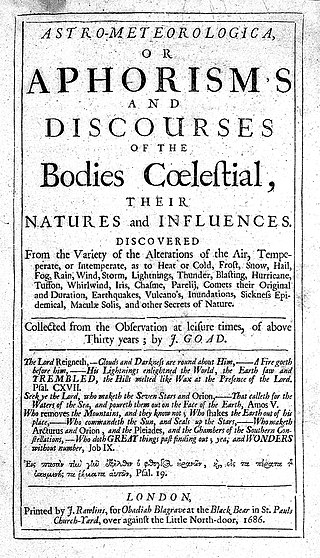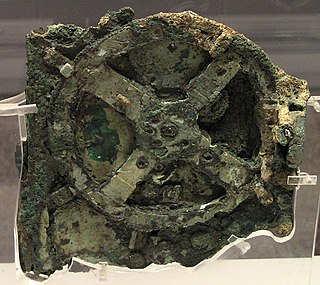
Liba Taub (born 1954) is an American historian of science, who was Curator and Director of the Whipple Museum at the University of Cambridge from 1995 to 2022.

Liba Taub (born 1954) is an American historian of science, who was Curator and Director of the Whipple Museum at the University of Cambridge from 1995 to 2022.
Taub completed her doctorate in 1987 at the University of Oklahoma.
Taub was Curator at the Adler Planetarium. [1] [2] Her research specialises in ancient Greek and Roman astronomy, physics and meteorology and researching the history of scientific instruments. She became a Fellow of Newnham College in 1996 and serves as a Professor of History and the Philosophy of Science. [3] Taub has been an Einstein Visiting Fellow at the Excellence Cluster Topoi in Berlin since 2010, in which she has participated in various workshops and workshops on Ancient Greek and Roman scientific writing. [4] She has authored books such as Ptolemy’s Universe: The Natural Philosophical and Ethical Foundations of Ptolemy’s Astronomy (1993), Ancient Meteorology (2003), and Aetna and the Moon: Explaining Nature in Ancient Greece and Rome (2008). [3]
Taub retired as Curator and Director of the Whipple Museum in 2022, succeeded by Dr Joshua Nall, and was appointed to the honorary role of the museum's Director of Research. [5] In 2024, a festschrift was published in her honour. Tools, Techniques, and Technologies. Essays in Ancient Science and its Reception in Honour of Liba Taub was edited by Laurence Totelin and Emma Perkins, and published by De Gruyter. [6]

Hipparchus was a Greek astronomer, geographer, and mathematician. He is considered the founder of trigonometry, but is most famous for his incidental discovery of the precession of the equinoxes. Hipparchus was born in Nicaea, Bithynia, and probably died on the island of Rhodes, Greece. He is known to have been a working astronomer between 162 and 127 BC.

The history of astronomy focuses on the contributions civilizations have made to further their understanding of the universe beyond earth's atmosphere. Astronomy is one of the oldest natural sciences, achieving a high level of success in the second half of the first millennium. Astronomy has origins in the religious, mythological, cosmological, calendrical, and astrological beliefs and practices of prehistory. Early astronomical records date back to the Babylonians around 1000 BCE. There is also astronomical evidence of interest from early Chinese, Central American and North European cultures.

Claudius Ptolemy was an Alexandrian mathematician, astronomer, astrologer, geographer, and music theorist who wrote about a dozen scientific treatises, three of which were important to later Byzantine, Islamic, and Western European science. The first was his astronomical treatise now known as the Almagest, originally entitled Mathematical Treatise. The second is the Geography, which is a thorough discussion on maps and the geographic knowledge of the Greco-Roman world. The third is the astrological treatise in which he attempted to adapt horoscopic astrology to the Aristotelian natural philosophy of his day. This is sometimes known as the Apotelesmatika but more commonly known as the Tetrábiblos, from the Koine Greek meaning "Four Books", or by its Latin equivalent Quadripartite.

The zodiac is a belt-shaped region of the sky that extends approximately 8° north and south of the ecliptic, the apparent path of the Sun across the celestial sphere over the course of the year. Also within this zodiac belt appear the Moon and the brightest planets, along their orbital planes. The zodiac is divided along the ecliptic into 12 equal parts ("signs"), each occupying 30° of celestial longitude. These signs roughly correspond to the astronomical constellations with the following modern names: Aries, Taurus, Gemini, Cancer, Leo, Virgo, Libra, Scorpio, Sagittarius, Capricorn, Aquarius, and Pisces.

Posidonius "of Apameia" or "of Rhodes", was a Greek politician, astronomer, astrologer, geographer, historian, mathematician, and teacher native to Apamea, Syria. He was considered the most learned man of his time and, possibly, of the entire Stoic school. After a period learning Stoic philosophy from Panaetius in Athens, he spent many years in travel and scientific researches in Spain, Africa, Italy, Gaul, Liguria, Sicily and on the eastern shores of the Adriatic. He settled as a teacher at Rhodes where his fame attracted numerous scholars. Next to Panaetius he did most, by writings and personal lectures, to spread Stoicism to the Roman world, and he became well known to many leading men, including Pompey and Cicero.

Melvyn Bragg, Baron Bragg is an English broadcaster, author and parliamentarian. He is the editor and presenter of The South Bank Show, and the presenter of the BBC Radio 4 documentary series In Our Time.
Astrological belief in relation between celestial observations and terrestrial events have influenced various aspects of human history, including world-views, language and many elements of culture. It has been argued that astrology began as a study as soon as human beings made conscious attempts to measure, record, and predict seasonal changes by reference to astronomical cycles.

Astrometeorology or meteorological astrology is a pseudoscience that attempts to forecast the weather using astrology. It is the belief that the position and motion of celestial objects can be used to predict both seasonal climate and weather. Throughout most of its history astrometeorology was considered a scholarly tradition and was common in academic circles, often in close relation with astronomy, alchemy, meteorology, medicine, and other types of astrology.

In Our Time is a BBC Radio 4 discussion series and podcast exploring a wide variety of historical, scientific and philosophical topics, presented by Melvyn Bragg, since 15 October 1998. It is one of Radio 4's most successful discussion programmes, acknowledged to have "transformed the landscape for serious ideas at peak listening time".

Greek mathematics refers to mathematics texts and ideas stemming from the Archaic through the Hellenistic and Roman periods, mostly from the 5th century BC to the 6th century AD, around the shores of the Mediterranean. Greek mathematicians lived in cities spread over the entire region, from Anatolia to Italy and North Africa, but were united by Greek culture and the Greek language. The development of mathematics as a theoretical discipline and the use of deductive reasoning in proofs is an important difference between Greek mathematics and those of preceding civilizations.

Science in classical antiquity encompasses inquiries into the workings of the world or universe aimed at both practical goals as well as more abstract investigations belonging to natural philosophy. Classical antiquity is traditionally defined as the period between the 8th century BC and the 6th century AD. It is typically limited geographically to the Greco-Roman West, Mediterranean basin, and Ancient Near East, thus excluding traditions of science in the ancient world in regions such as China and the Indian subcontinent.

The climes in classical Greco-Roman geography and astronomy were the divisions of the inhabited portion of the spherical Earth by geographic latitude.

The Whipple Museum of the History of Science is a museum attached to the University of Cambridge, United Kingdom, which houses an extensive collection of scientific instruments, apparatus, models, pictures, prints, photographs, books and other material related to the history of science. It is located in the former Perse School on Free School Lane, and was founded in 1944, when Robert Whipple presented his collection of scientific instruments to the University of Cambridge. The museum's collection is 'designated' by the Museums, Libraries and Archives Council (MLA) as being of "national and international importance".

Ancient Greek astronomy is the astronomy written in the Greek language during classical antiquity. Greek astronomy is understood to include the Ancient Greek, Hellenistic, Greco-Roman, and late antique eras. Ancient Greek astronomy can be divided into three primary phases: Classical Greek Astronomy, which encompassed the 5th and 4th centuries BC, and Hellenistic Astronomy, which encompasses the subsequent period until the formation of the Roman Empire ca. 30 BC, and finally Greco-Roman astronomy, which refers to the continuation of the tradition of Greek astronomy in the Roman world. During the Hellenistic era and onwards, Greek astronomy expanded beyond the geographic region of Greece as the Greek language had become the language of scholarship throughout the Hellenistic world, in large part delimited by the boundaries of the Macedonian Empire established by Alexander the Great. The most prominent and influential practitioner of Greek astronomy was Ptolemy, whose treatise Almagest shaped astronomical thinking until the modern era. Most of the most prominent constellations known today are taken from Greek astronomy, albeit via the terminology they took on in Latin.

Angela Hunter "Angie" Hobbs is a British philosopher and academic, who specialises in Ancient Greek philosophy and ethics. She is Professor of the Public Understanding of Philosophy at the University of Sheffield.

Ancient, medieval and Renaissance astronomers and philosophers developed many different theories about the dynamics of the celestial spheres. They explained the motions of the various nested spheres in terms of the materials of which they were made, external movers such as celestial intelligences, and internal movers such as motive souls or impressed forces. Most of these models were qualitative, although a few of them incorporated quantitative analyses that related speed, motive force and resistance.
The Department of History and Philosophy of Science (HPS), of the University of Cambridge is the largest department of history and philosophy of science in the United Kingdom. A majority of its submissions received maximum ratings of 4* and 3* in the 2014 REF. Located in the historic buildings of the Old Physical Chemistry Laboratories on Free School Lane, Cambridge, the department teaches undergraduate courses towards the Cambridge Tripos and graduate courses including a taught Masters and PhD supervision in the field of HPS. The department shares its premises with the Whipple Museum and Whipple Library which provide important resources for its teaching and research.
Alice König is a British historian. She is Director of the Centre for the Literatures of the Roman Empire at the University of St Andrews and lectures in Latin and Classical Studies.
Emily Winterburn is a British science writer, physicist and historian of science based in Yorkshire. She is a visiting Fellow at the University of Leeds. Among other books, she wrote The Quiet Revolution of Caroline Herschel, published by The History Press in 2017.

Laurence Totelin (FRHistS) is a historian of Greek and Roman science, technology, and medicine. She is professor of ancient history at Cardiff University.